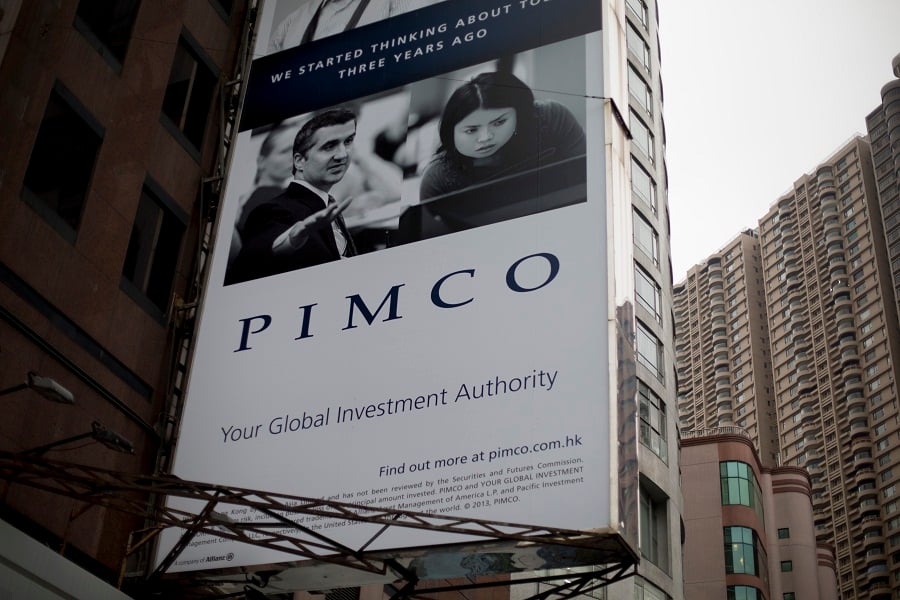Investment manager sees better opportunity in corporate bonds
Pacific Investment Management Co. says investors should move out of government securities and into corporate credit because the U.S. will avoid a recession.
With sovereign bonds in Japan and Germany offering negative yields, and equity valuations stretched, Pimco says high-quality company debt, junk bonds and bank loans offer a better risk-adjusted alternative. Investor demand for U.S. debt will be tested this week when the government auctions $24 billion of three-year notes Tuesday, $20 billion of benchmark 10-year securities the following day and $12 billion of 30-year bonds on March 10.
http://www.investmentnews.com/wp-content/uploads/assets/graphics src="/wp-content/uploads2016/03/CI10422638.JPG"
"Pimco's belief that the U.S. economy will avoid recession this year bolsters our view that it's time to move into credit," Mark Kiesel, chief investment officer for global credit at Pimco in Newport Beach, California, wrote in a note on the company's website. “Credit, in our opinion, is in the 'sweet spot' intermediate zone between lower-risk sovereign assets, which tend to outperform leading into recession, and higher-risk assets such as equities.”
Investment-grade corporate bonds, high-yield debt and bank loans provide investors with a chance to boost returns while offering less volatility than stocks, Mr. Kiesel wrote.
INCREASED DEMAND
“Higher interest rates in the U.S. will likely lead to increased demand from foreign investors for U.S. financial assets, which in turn would lead to potential outperformance of credit given global investors' need for stable income,” Mr. Kiesel wrote.
Mr. Kiesel is one of three managers for the $87.8 billion Pimco Total Return Fund. The fund has returned 0.1% in the past year, underperforming about two-thirds of its peers, according to data compiled by Bloomberg.
The flight to quality that boosted Treasuries earlier this year revived Tuesday after China data showed exports tumbled 25% in dollar terms in February from a year earlier. The Shanghai Composite Index fell as much as 3.3%.
The benchmark 10-year note yield dropped three basis points to 1.88% as of 2:10 p.m. in Tokyo, according to Bloomberg Bond Trader data. The price of the 1.625% security due in February 2026 climbed 7/32, or $2.19 per $1,000 face amount, to 97 21/32.
RISK 'PLUNGE'
The “plunge in risk asset prices is helping the bid” for Treasuries, said Tomohisa Fujiki, the head of interest-rate strategy for Japan at BNP Paribas SA in Tokyo. The company is one of the 22 primary dealers that underwrite the U.S. debt.
Japan's 10-year bond yield extended its decline below zero, setting a record of minus 0.09%.
After outperforming equities and corporate debt in the first two months of this year, Treasuries are showing signs of faltering as stronger-than-forecast U.S. employment data and an uptick in inflation expectations lead traders to boost wagers the Federal Reserve will raise interest rates.
The Bloomberg U.S. Treasury Bond Index has fallen 0.8% in March, after gaining 2.1% in January and 0.9% in February. The Bloomberg U.S. Corporate Bond Index is little changed this month and has gained 1.1% in 2016.
RATE DIVERGENCE
The Fed will leave rates unchanged when it meets March 15-16, according to 52 of the 61 economists surveyed by Bloomberg. The European Central Bank will cut its deposit rate, which is already below zero, when it meets March 10, a separate survey shows.
Derivatives traders see about a 72% chance the Fed will raise rates by year-end, up from a 36% probability on Feb. 25, according to futures data compiled by Bloomberg. The calculation assumes the effective fed funds rate will average 0.625% after the Fed's next increase.
“Investors have come to the realization that the economic data at some point will allow the Fed to continue with the normalization," said Thomas Simons, a government-debt economist in New York at Jefferies Group LLC, another primary dealer. "The tone from the economic data last week was pretty strong."







